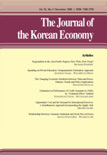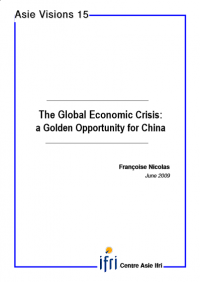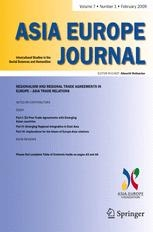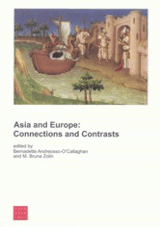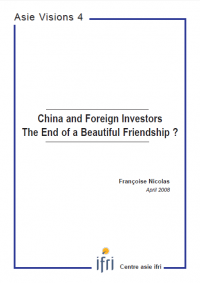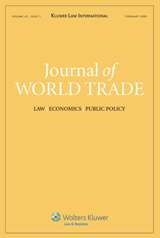
Françoise NICOLAS
Senior Advisor, Center for Asian Studies
Research Interests:
- Emerging economies, with a focus on East Asia
- East Asian regional economic integration
- Foreign direct investment and growth
- Globalization and its impacts on global governance
Françoise Nicolas joined Ifri as a Resarch Fellow in1990 and was later the Director of the Center for Asian Studies until February 2024. She is now Senior Advisor to the Center for Asian Studies while she also teaches at Langues' O, Sciences Po Paris (Europe-Asia programme, Le Havre campus) and Sciences Po (Lyon) and is a consultant to the Directorate for Financial, Fiscal and Enterprise Affairs of the OECD (DAF) focusing on Southeast Asian non-member countries. In the past she was an assistant Professor in international economics at the University of Paris-Est (Marne-la-Vallée) from 1993 to 2016, and taught at the Graduate Institute of International Studies (GIIS, Geneva – 1987-90), at the Ecole Nationale des Ponts et Chaussées (1991-95), as well as at the HEC School of Management (2000-02).
Françoise Nicolas holds a Ph.D in international economics (1991) and a MA in political science (1985) from the Graduate Institute of International Studies (Geneva, Switzerland), as well as a diploma in translation from the University of Geneva (1980). She has also studied at the University of Sussex (1980-81) and has spent some time as a visiting fellow at the Institute of Southeast Asian Studies (ISEAS) in Singapore (1999) and at the Korea Institute for International Economic Policy (KIEP) in Seoul (2004).
The economic rise of China and its integration into the globalization process is undoubtedly one of the most important developments of the past decades. The objective of the paper is to examine the changing nature and structure of the Korea-China trade and investment...
China did not prove to be crisis-proof in contrast to what the supporters of the decoupling hypothesis loved to claim. The paper will analyse the impacts of the crisis and the Chinese responses to the crisis.
...A number of countries have chosen recently to shift away from an exclusive support to trade multilateralism and towards regional or bilateral trade agreements. Being no exceptions in this respect, the Republic of South Korea and the European Union have engaged in a bilateral...
A widely held consensus view claims that East Asia has been shifting recently from a market-led to an institution-based form of regional economic integration, primarily as a result of the 1997-1998 financial crisis. Next to post-crisis financial cooperation schemes under the...
In the wake of the financial crisis of 1997-98 there has been a clear shift in a number of Southeast Asian countries towards the development of Free Trade Agreements (FTAs). ASEAN as a group has concluded FTAs with China and Korea, and it is still negotiating with Japan and India. In addition...
The promotion of FDI has been an important component of China's economic reform process and China has become one of the most important destinations of FDI. Although heavy-handed interventionism is nothing new in China, the direction of state-interventions seems to have shifted lately away from...
The promotion of FDI has been an important component of China's economic reform process and China has become one of the most important destinations of FDI. Although heavy-handed interventionism is nothing new in China, the direction of state-interventions seems to have shifted lately away from...
The starting point of the paper is that an agreement will, sooner or later, be negotiated between ASEAN and the EU. As a result, the objective of the paper is not to examine the rationale for such an agreement but to outline its possible scope. Because, the content of a...
The revival of EU-ASEAN economic relations has recently been stirred by the EU-ASEAN Vision Group that was set up in 2005, with the aim of looking into the possibility of a free trade area (FTA) between the two regions. This article analyses the economic feasibility of an EU...
The movement of proliferation of regional trade agreements (RTAs), since the creation of the WTO, stands out from previous movements due to its dynamism, the intertwining of agreements (bilateral, regional and multilateral), the ambition displayed in these agreements, and...




